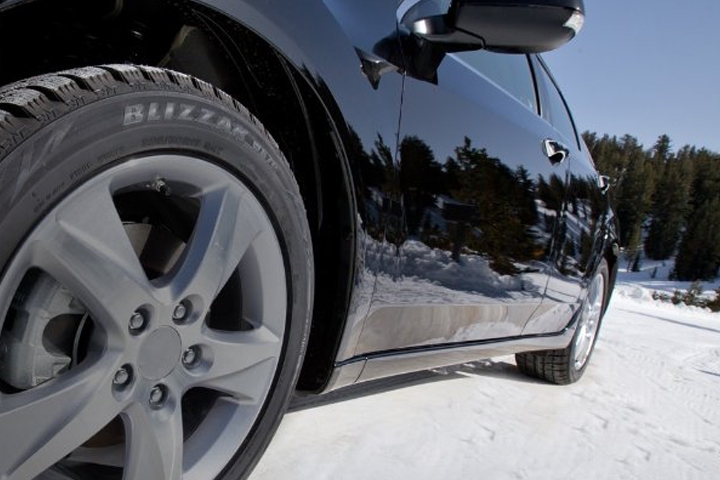
Post Date : 10 May 2022
Many drivers ask themselves, “Do I need winter tires if I have all season tires on my car?” The short answer is, possibly. To understand what tires you’ll need, you must first understand the differences in winter tires vs. all season tires. Every driver’s needs are different depending on the weather and road conditions they encounter throughout the year.
Many vehicles are fitted with all season tires when they leave the factory. Since they are built to provide a relatively quiet ride, good tread life and fuel economy, its no wonder why they are so popular. All season tires offer versatile performance and are designed to perform in a variety of conditions including wet roads and light winter driving. All season tires are designed to offer a combination of benefits from summer and winter tires.
Does being both summer and winter-ready mean all season tires combine the best capabilities of summer and winter tires? Unfortunately, it doesn’t. In an effort to provide good performance in many conditions, all season tires tend to compromise some max summer and winter performance capabilities. What does that mean? That means all season tires won’t provide the same amount of extreme grip and sharp handling of a summer tire. Likewise, an all season tire is not designed to handle extreme winter conditions like trekking through snow or driving on ice. Think of all season tires like tennis shoes. You can wear tennis shoes all year, but they aren’t ideal for all situations. It’d be much better to have flip flops on the beach in the summer and boots for the snow.
All season tires are a great option for drivers who live in moderate climates and do not encounter extreme cold, ice and snow in the winter months.
When it comes to driving in winter weather, having the right tire matters. From heavy snowfall to black ice, winter roads are extremely unpredictable. These conditions challenge tires to provide traction like no other season of the year. The combination of cold temperatures, ice, and snow can be best met by winter tires, which are specially designed to perform in winter conditions. There are specific features of winter tires that make them unique – tread rubber, tread rubber, and biting edges.
In extreme cold temperatures, the tread rubber of an all season or summer tire stiffens and becomes less able to provide sufficient traction. To combat this, tread rubber compounds of winter tires are designed to remain flexible, allowing the tire to grip the road better.
A unique feature of winter tires is deeper tread depths and unique tread patterns. Deeper tread depths reduce snow buildup and provide better traction on the snow. Winter tire tread patterns are designed to channel snow and slush and expel water.
Winter tires also feature an increased number of biting edges and high sipe densities, or in other words, thousands of tiny slits in the tread that provide traction on ice.
The solution to the winter or snow tires vs all season tires question will depend on where you live and the conditions in which you drive. If you only see a few snow flurries each year and slick, icy roads are more of a fluke than an annual ordeal, all season tires are probably the way to go. But if you know there’s a period when icy roads are always an issue, mounting winter tires isn’t an over-the-top precaution – it’s an essential safety measure that could save your life. When mounting winter tires for the season, always install a full set. Just changing out the front tires increases the likelihood that the rear tires will skid. Likewise, just putting snow tires on the rear wheels could cause the front tires to lose traction and make it impossible to steer your vehicle. And remember to re-mount those all season tires when spring rolls around. While winter tires are undeniably superior in extreme winter conditions, they’ll wear down faster on warm, dry pavement.